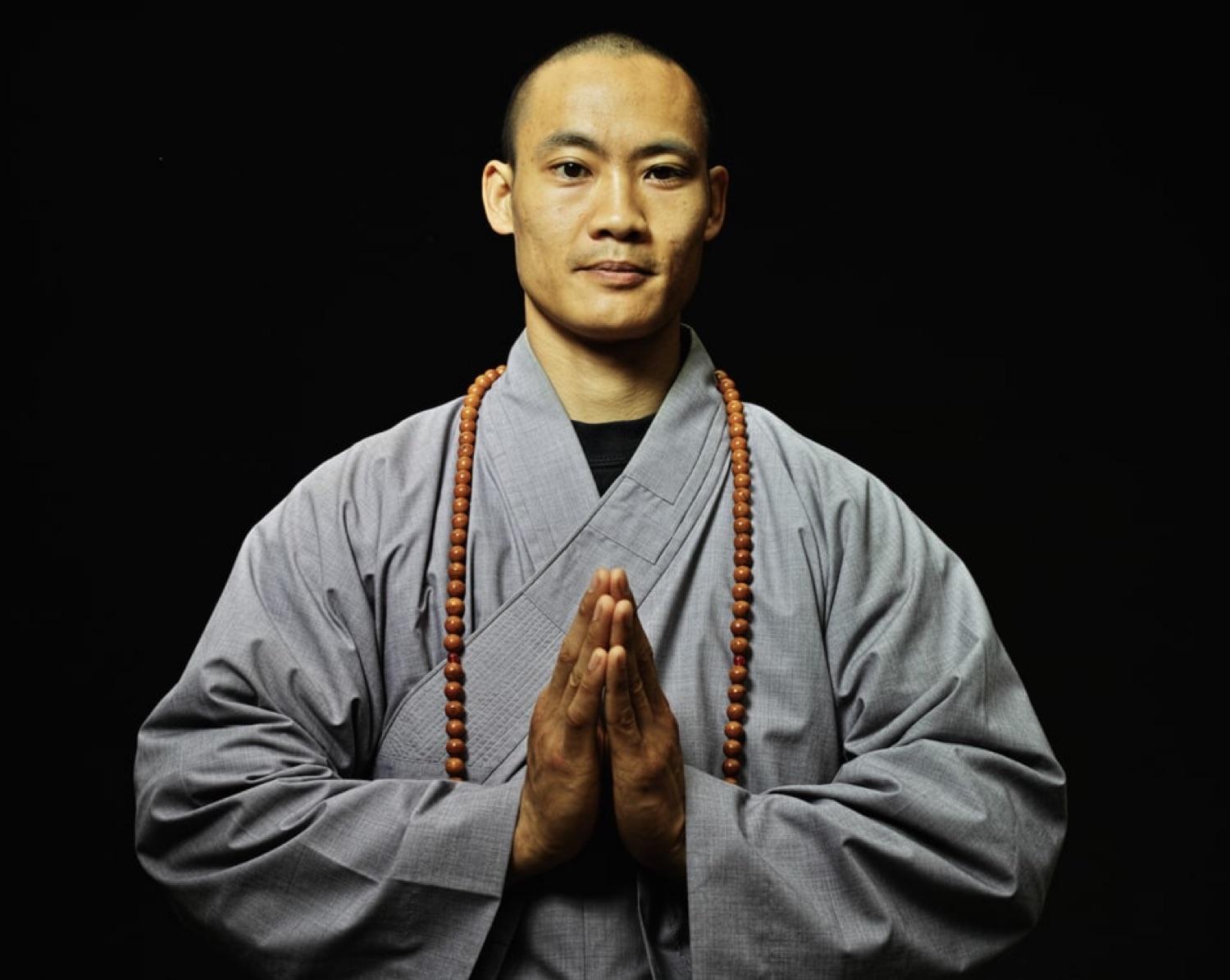The 5 Hindrances to Self-Mastery
Curated from: ted.com
Ideas, facts & insights covering these topics:
16 ideas
·5.56K reads
38
1
Explore the World's Best Ideas
Join today and uncover 100+ curated journeys from 50+ topics. Unlock access to our mobile app with extensive features.
The Man And The Mountain
A man was living close to a mountain, and every day he was thinking: How would it be to climb that mountain and what would I see on the peak? So finally, the day came, and the man went on the journey. Arriving at the foot of the mountain, he met the first traveler. So he asked, "How did you get up the mountain, and what did you see from the top?" And so the traveler shared his path, and also the view that he had. But then the man was thinking, “The way that this traveler described to me sounds very exhausting. I need to find another way to climb.”
57
580 reads
A Journey Never Made And A Peak Never Seen
So the man continued to walk on the foot of the mountain until he met the next traveler. So once again he asked, “How did you climb up that mountain, and what did you see from the top?” And so again the traveler shared his story. Still not being determined on which direction and which way to go, the man asked 30 more people, 30 more travelers. When he finished talking to all of them, he finally made up his mind. “Now that so many people already shared with me their paths and especially what they all saw from the top, I don’t need to climb there anymore.”
56
459 reads
We Can Share Information But We Cannot Share Experience
What this story teaches us is, firstly, that each individual needs to find the most suitable way to climb that mountain. But secondly, there is information possible to be shared with words, but it is impossible to share the experience of clarity when you are standing on that peak by yourself. To invest the right effort in climbing that peak, it’s very much what all the Buddhist practices, the Shaolin training, or any spiritual practice is about.
58
440 reads
As Clear As Day - As Clear As Water - As Clear As A Bell
Clarity means we see more clear.
When we see more clear, interrelations become more apparent.
When we see more clear, there is no need to believe anyone or anything.
Seeing clearly means we can distinguish for ourselves which is the proper direction to take and which decisions we have to make in order to make our goals or aspirations take shape.
57
432 reads
The 5 Hindrances
Along our personal journey, we will encounter challenges. Those challenges will either prevent us, or some of them even stop us, from moving on and climbing that mountain. In the Shaolin practice, they are referred to as “the five hindrances.” The 5 hindrances are describing different states of the mind. In those states of the mind, it becomes very hard to see clearly and therefore engage in the right decisions.
55
387 reads
Hindrance 1 - Sensual Desire
The first hindrance is called “sensual desire.” Sensual desire arises in the moment when we are paying attention to something that is giving us a positive emotion. This positive emotion can originate from five gates of our body: Seeing, hearing, smelling, tasting, or feeling. So in our mind, we climb up that mountain. After one mile of walking, we discover a beautiful restaurant surrounded by beautiful people. We smell delicious food and the great variety of beverages.
57
385 reads
Levels Of Sensual Desire And Clarity
When we follow that temptation, we have already lost our track.
When this temptation becomes so strong that we don’t want to leave that place anymore, then the sensual desire has turned into an obsession.
In both cases, remaining at that place means that we can’t get clarity.
57
362 reads
Hindrance 2 - Ill Will
The second hindrance, “ill-will,” describes the state of the mind that arises from negative emotions. In that state of the mind, we have an aversion, a rejection, or simply a dislike against either an object, a situation, or can be even a person. To simplify, it means: We are climbing the mountain, and it starts to rain, but we don't like rain. We discover the roads are bumpy, but we don’t like bumpy roads. Whatever it is that we dislike, it won’t make it a pleasant journey unless we learn to let go of this ill-will. It’s more likely even that we won’t continue that journey.
58
318 reads
Hindrance 3 - Sloth & Torpor
The third hindrance originally translated as “sloth and torpor.” “Sloth” means the heaviness of the body. “Torpor” means the dullness of the mind. It is characterized by sleepiness, non-motivation, lack of energy, and oftentimes can manifest itself in a state of depression. Now, a simile used in Buddhism describes it as “imprisonment.” We find ourselves locked in a cell. It becomes very hard to make any type of mental or physical effort. So in order to continue our path, there is only one option left. We need to find a way to get out from that hole, from that cell.
59
296 reads
Hindrance 4 - Restlessness
The fourth hindrance is called “restlessness”. It is the state of an unsettled mind. “Unsettled mind” means our mind cannot settle. Settle where? Settle in the present moment. An unsettled mind either is worrying about the future or traveling into the past and rejecting, judging about an event that happened into your past. A simile used here is the monkey mind, constantly jumping from one branch to another, unable to stay for too long time at the present moment. The problem is, there is no time to see clearly anymore.
61
278 reads
Hindrance 5 - Skeptical Doubt
The last of the five hindrances is called “skeptical doubt,” and it's very closely related to a state of mind which is based on indecisiveness. It is very easy in that state of mind getting lost in thoughts. Can I do this? Is this the right path? What will the others say? “What if” this? “What if” that? The mind cannot synchronize with our own actions anymore. And the result is that we are getting disconnected with the goals and aspirations that once we have set to ourselves. When the way is filled with too much doubts, more often we will stop instead of moving on.
58
259 reads
How To Overcome The 5 Hindrances
First, we need to align and structure our life in such a way as to prevent those hindrances from arising. If we are not successful, we need to use techniques in order to remove them. Each of these hindrances is placing a dark cloud on our mind, or on the way of our climb. Simply remember one thing:
Just let it RAIN.
Recognize, Accept, Investigate, Non-Identify.
66
261 reads
The RAIN Method
This is a 4 step method to help us in removing the 5 hindrances. The first step is to recognize in what state of the mind we are finding ourselves in. Afterwards, learn to accept, acknowledge, and allow the situation or the person to be the way it is, to be the way they are. Investigate our emotional and mental state, and ask questions: Why did it come up? What is going to be the consequence if I remain in that state? And ultimately, non-identification means detaching and delimiting: I am not the body. I am not the mind. I am not my emotion. These are just three aspects that I see about me.
66
274 reads
Self-mastery - Walk The Walk, But Walk Your Walk
All of our lifetimes, all of our lives are too unique to copy the path from someone else.
To bring meaning to our life, to bring value into our life, we need to learn and master ourselves, and not let the hindrances stop us.
Just let it RAIN.
55
293 reads
If any of you chooses to climb that path to clarity, I would be very happy to meet you at the peak.
SHI HENG YI
57
291 reads
IDEAS CURATED BY
CURATOR'S NOTE
In this TED Talk, Shaolin Master Shi Heng Yi talks about self-discovery and the hindrances along the way to it and to personal growth. Learn why RAIN is an essential part of each flowering, and every small step a part of the journey to the highest peak.
“
Xarikleia 's ideas are part of this journey:
Learn more about motivationandinspiration with this collection
Understanding the importance of constructive criticism
How to receive constructive criticism positively
How to use constructive criticism to improve performance
Related collections
Similar ideas
8 ideas
6 Life Lessons from Master Oogway – Wisdom of the Ancient
kungfupanda.fandom.com
Read & Learn
20x Faster
without
deepstash
with
deepstash
with
deepstash
Personalized microlearning
—
100+ Learning Journeys
—
Access to 200,000+ ideas
—
Access to the mobile app
—
Unlimited idea saving
—
—
Unlimited history
—
—
Unlimited listening to ideas
—
—
Downloading & offline access
—
—
Supercharge your mind with one idea per day
Enter your email and spend 1 minute every day to learn something new.
I agree to receive email updates


